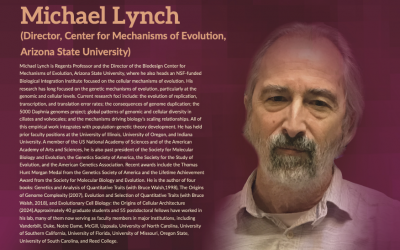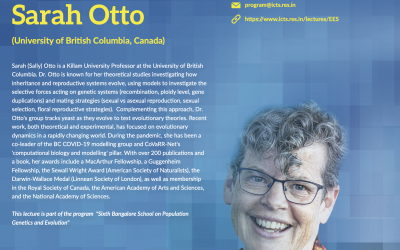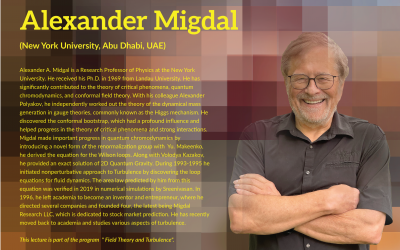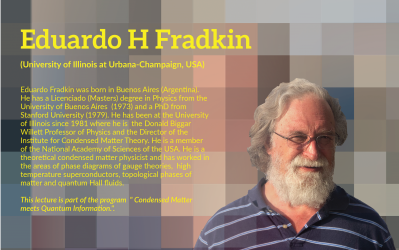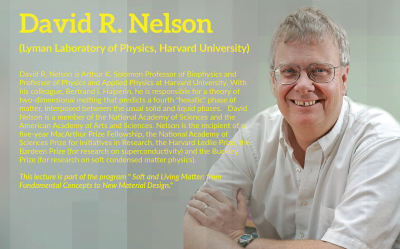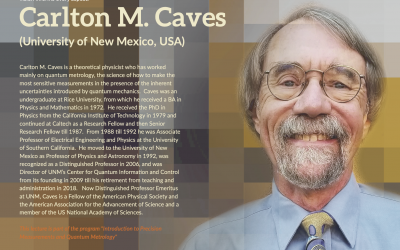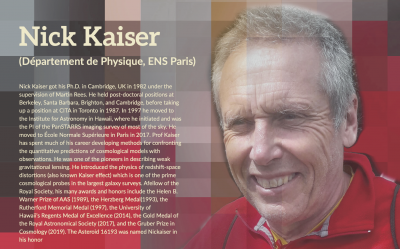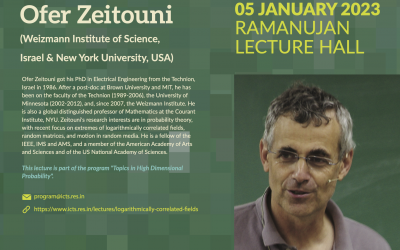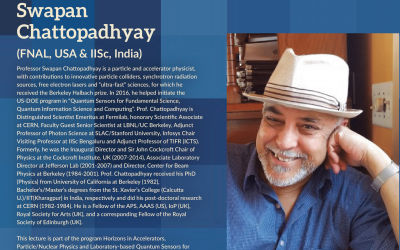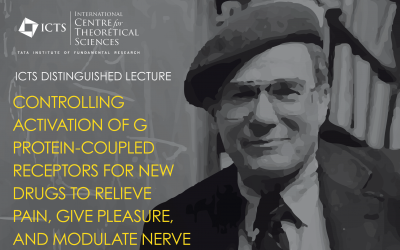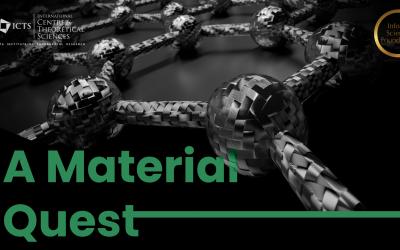Michael Lynch (Center for Mechanisms of Evolution, Arizona State University)
10 May 2024, 14:00 to 15:00
Ramanujan Lecture Hall, ICTS
Title : Principles of Evolutionary Overdesign and Underperformance Abstract : For over a century, most biologists have been convinced that all aspects of biodiversity have been driven entirely by natural selection, with stochastic forces and mutation bias playing a minimal role. However, this is...more


